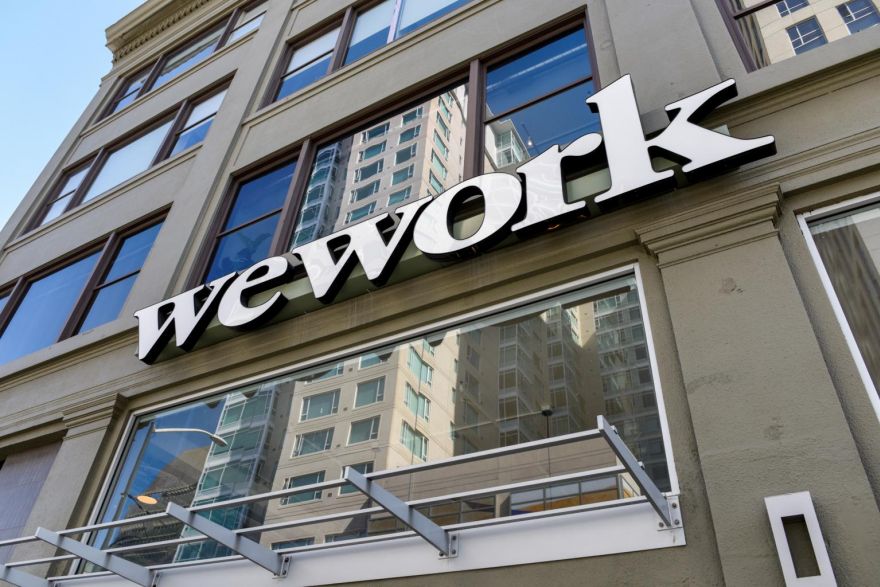Disclaimer: The views, suggestions, and opinions expressed here are the sole responsibility of the experts. No Scoop Today USA journalist was involved in the writing and production of this article.
Selective: WeWork proprietor makes board of trustees to settle on financing life saver – sources

NEW YORK (Reuters) – WeWork proprietor, The We Company, has shaped a unique board advisory group to consider recommendations for a $5 billion financing help from its biggest investor SoftBank Group Corp (9984.T) and its primary loan specialist JPMorgan Chase and Co (JPM.N), four individuals acquainted with the issue said on Wednesday.
The workplace space sharing organization is building up the council with an end goal to ring-fence its financing considerations from SoftBank’s impact, the sources said. The Japanese innovation aggregate possesses about 33% of WeWork, and any new value speculation could conceivably give it control.
WeWork is hurrying to raise new capital in the wake of rejecting plans a month ago for a first sale of stock (IPO). Sources have said it could come up short on money as right on time as November except if it verifies new financing.
A WeWork representative declined to remark. We Company chiefs didn’t quickly react to demands for input.
The panel will just have two individuals – both We Company board chiefs with the errand of speaking to the premiums of all financial specialists in the organization, the sources said.
One is Bruce Dunlevie, who is a general accomplice at WeWork investor Benchmark Capital, as per the sources. The other is Lew Frankfort, who is the previous CEO of extravagance tote creator Coach, they included.
SoftBank won’t have a delegate, the sources said. It is spoken to on We Company’s seven-part board by its President Ron Fisher. Previous Goldman Sachs Group Inc (GS.N) venture investor Mark Schwartz, who filled in as a SoftBank chief until prior this year, likewise sits on the board.
WeWork prime supporter Adam Neumann, who surrendered as CEO a month ago yet held his job as executive of the board, doesn’t grab a chair on the advisory group either, as indicated by the sources, who mentioned secrecy in talking about the secret plans.
WeWork dropped its IPO following financial specialist worries about mounting misfortunes, its plan of action and the manner in which the organization was being run. Its assessed valuation dropped from $47 billion in January to as low as $10 billion a month ago.
Accordingly, WeWork is trying to hinder its extension, decreasing the quantity of new property leases it is taking on and thinking about cutbacks.
SoftBank has proposed up to a $5 billion interest in WeWork two of the sources said. It likewise needs to renegotiate a past responsibility for a $1.5 billion interest as warrants that are expected in April at the $47 billion valuation, the sources included. It has just put some $10 billion in WeWork.
As far as it matters for its, JPMorgan is scouring the market to raise financing responsibilities from banks and security speculators for as much as $5 billion, one of the sources said. It has not consented to guarantee the obligation, and WeWork needs to perceive how a lot of obligation can be raised without prompting a weakening for existing investors before settling on a choice, the source included.
WeWork may try to join the SoftBank and JPMorgan proposition in some structure, as indicated by the sources.
SoftBank declined to remark for this story. JPMorgan didn’t quickly react to demands for input.
Irreconcilable situations
Freely recorded organizations structure exceptional board advisory groups to shield the interests of minority investors when thinking about exchanges, for the most part when some board agents face irreconcilable situations. It is less basic for a privately owned business, for example, WeWork to frame a unique advisory group.
Nonetheless, WeWork has been powerless against analysis of its corporate administration plans on account of Neumann’s earlier grasp on the organization.
Neumann’s offers used to have a similar democratic power as 20 We Company normal offers, before he consented to incompletely diminish his hold a month ago – decreasing the proportion to 3-1 – in an ineffective endeavor to make an IPO progressively alluring to speculators.
Neumann had likewise gone into a few exchanges with WeWork, making the organization an occupant in a portion of his own properties and charging it lease. He has additionally verified a $500 million credit line from banks utilizing organization stock as insurance.
At the point when Neumann surrendered the CEO job a month ago under strain from SoftBank, Benchmark Capital and different speculators, he said he did so in light of the fact that the investigation coordinated towards him turned into a “noteworthy interruption”.
Artie Minson, beforehand WeWork’s CFO, and Sebastian Gunningham, who was a bad habit director at the organization, are currently filling in as its co-CEOs.






